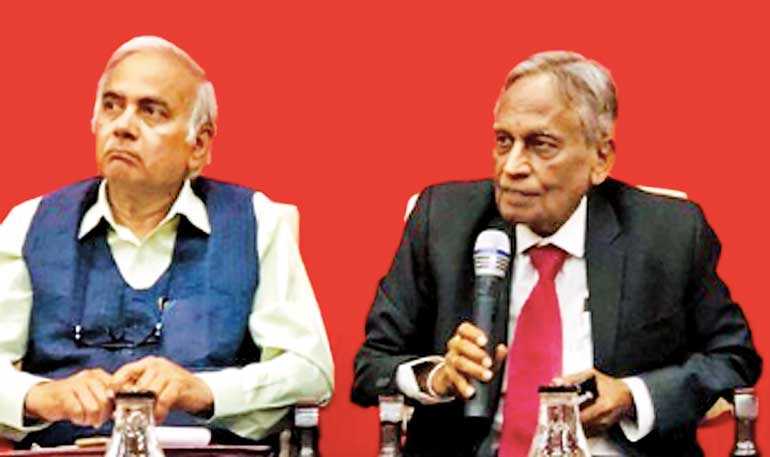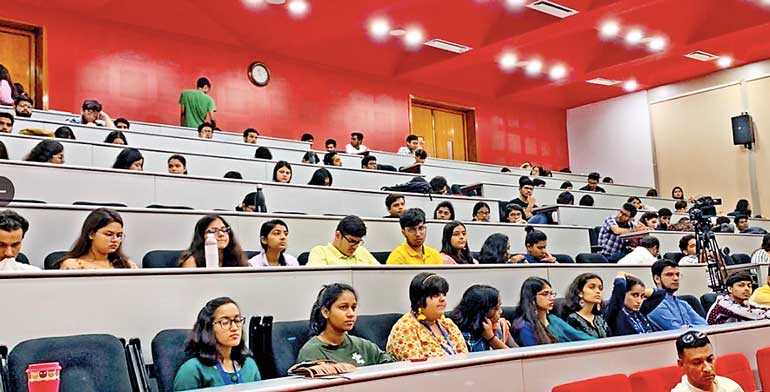Tuesday Feb 24, 2026
Tuesday Feb 24, 2026
Monday, 16 September 2019 00:01 - - {{hitsCtrl.values.hits}}

High Commissioner of Sri Lanka to India Austin Fernando (right) speaks at the panel

Students at the panel
This year marks the 10th Anniversary of the Jindal Global University (JGU) a significant milestone in the history of Indian higher education. Coinciding with the university’s anniversary, the Diplomania Society of the Jindal School of International Affairs (JSIA) organised a series of panel discussions on the theme ‘Radicalisation in South Asia’.
The participation of the High Commissioner of Sri Lanka to India Austin Fernando as a panellist in front of a large audience at the university was an important moment that offered some fresh insights into the radicalisation of youth in Sri Lanka during the past thirty years. In his speech, Fernando spoke openly about valuable perspectives based on Sri Lanka’s past experiences with ethnic conflict and later reflected on the radicalisation that occurred at some point during the post-conflict period. Similarly he explained the circumstances that led to the Easter Sunday attacks five months ago. 
Possibly generalising beyond the context of this youth conclave, the most important lessons the Sri Lankan High Commissioner imparted were the emerging patterns that lead to radicalisation. Revisiting the recent events in Sri Lanka, the High Commissioner assessed the challenges and limitations of this complex subject. Illustrating the same point, Fernando further explained that outcomes of such de-radicalisation initiatives needs the involvement of a broader community engagement initiative. In a slightly different way, he also spoke about social media and its influence on the world as a whole and how Sri Lankan authorities managed the use of social media during and after a crisis occurred.
The panel, moderated by Professor Sripathi Narayanan, also included some other well-known panellists such as Global Affairs Analyst Professor Sreeram Chaullia, the Dean of the Jindal School of International Affairs (JSIA) Dr. Seshadri Chari and Dr. Indramohan Jha, who shared their experiences and encouraging insights on this complex issue. The discussion wound up after a long and fruitful exchange of views between the students and the panellists.
On behalf of the Jindal School of International Affairs (JSIA), Professor Pankaj Jha delivered a special vote of thanks and also presented JGU appreciation mementos to the panellists in recognition of their valuable contributions to the panel discussion.
(The views and opinions expressed in this article are those of the author)
The writer is a Doctoral Fellow at the Jindal School of International Affairs (JSIA), India and the Global Editor of Diplomatic Society for South Africa. He won the 2018/2019 Best Journalist of the Year award in South Africa.